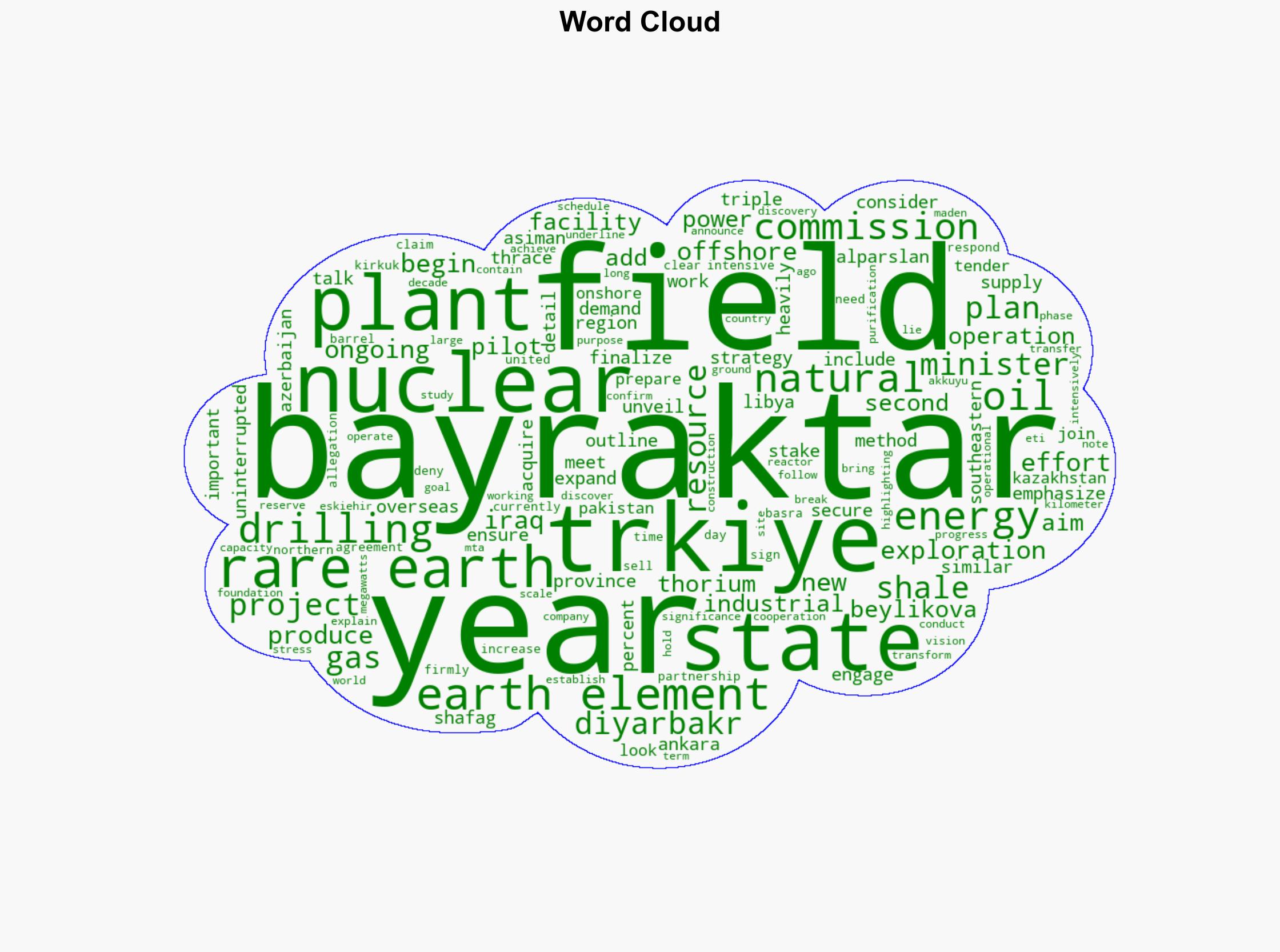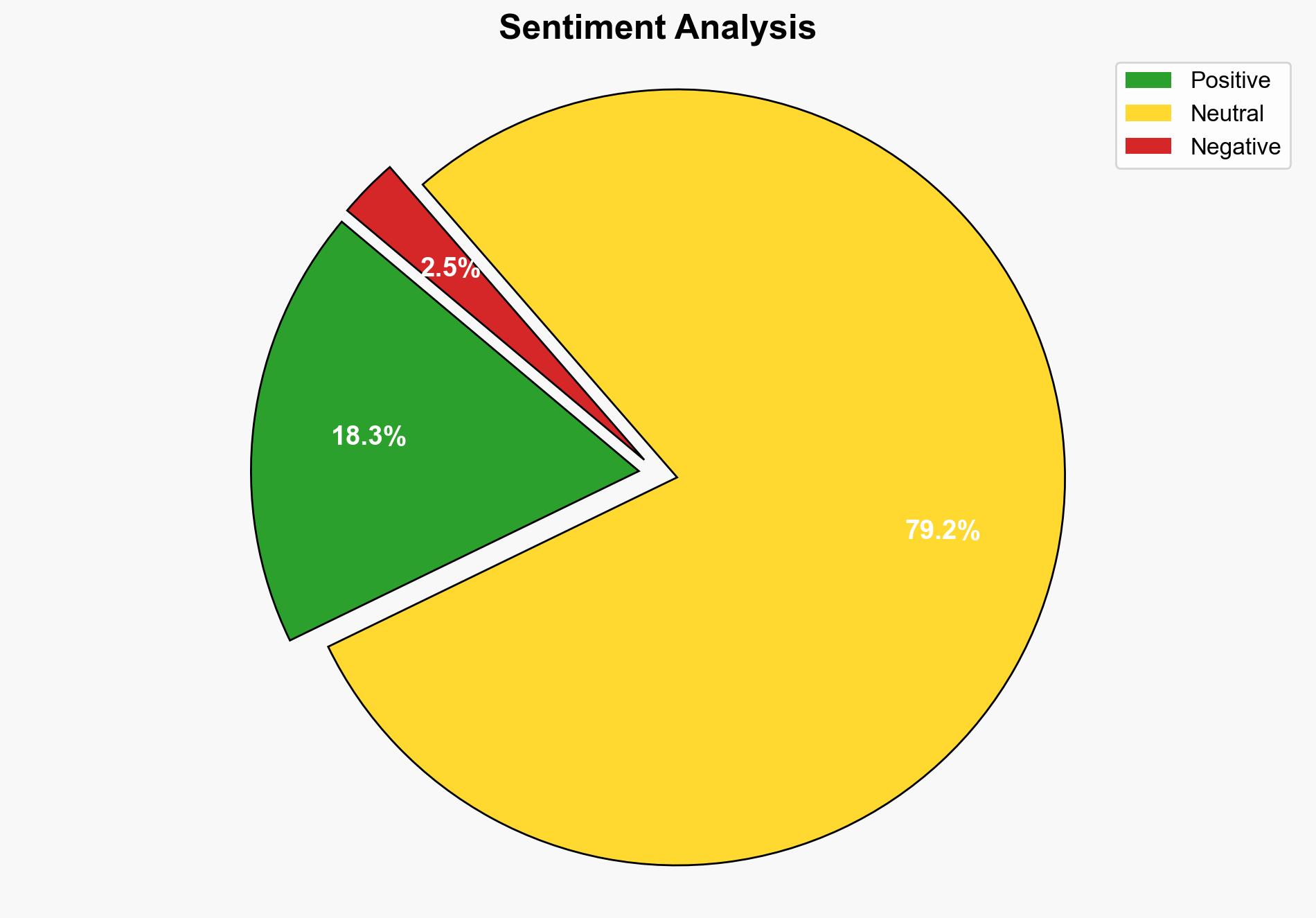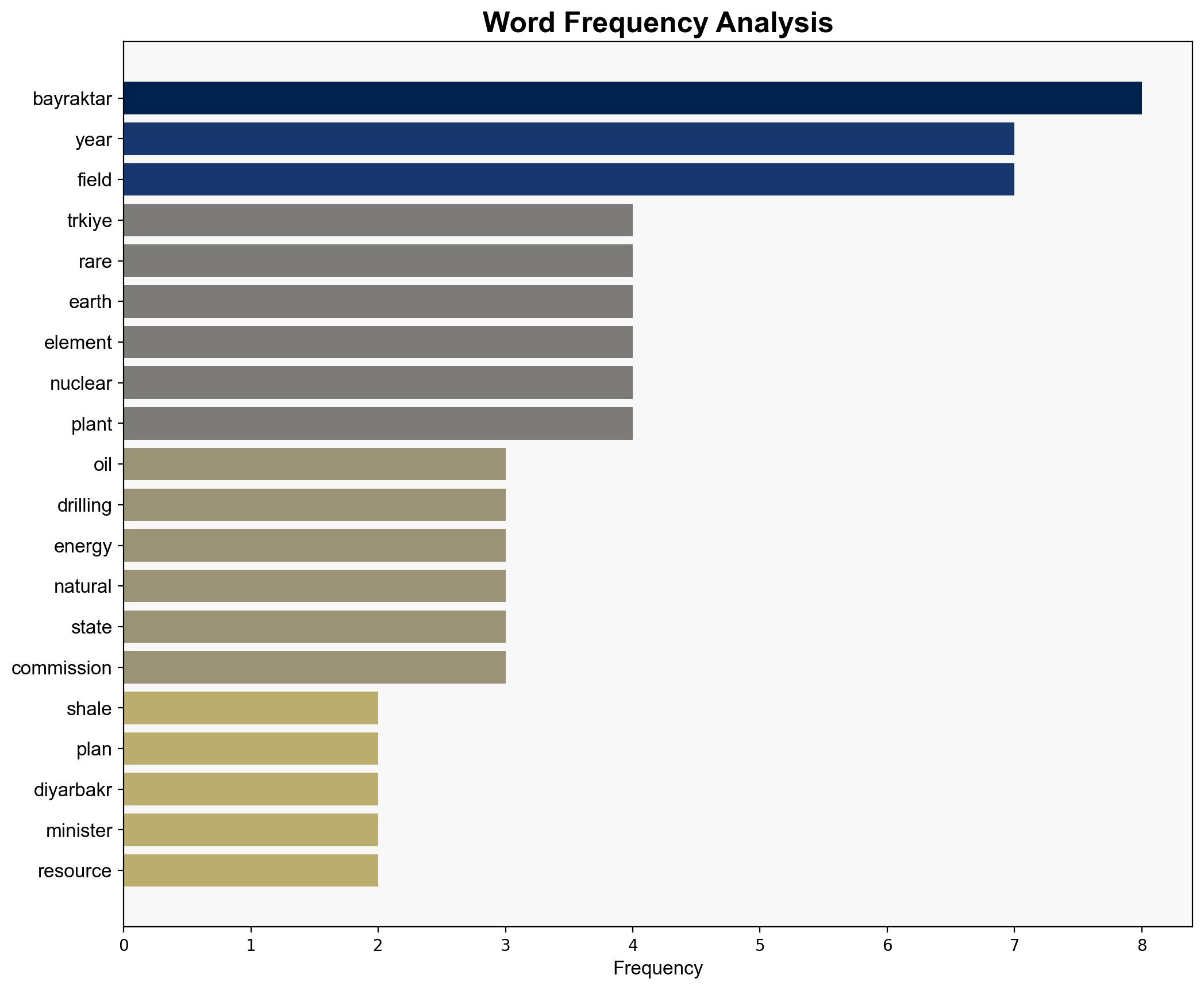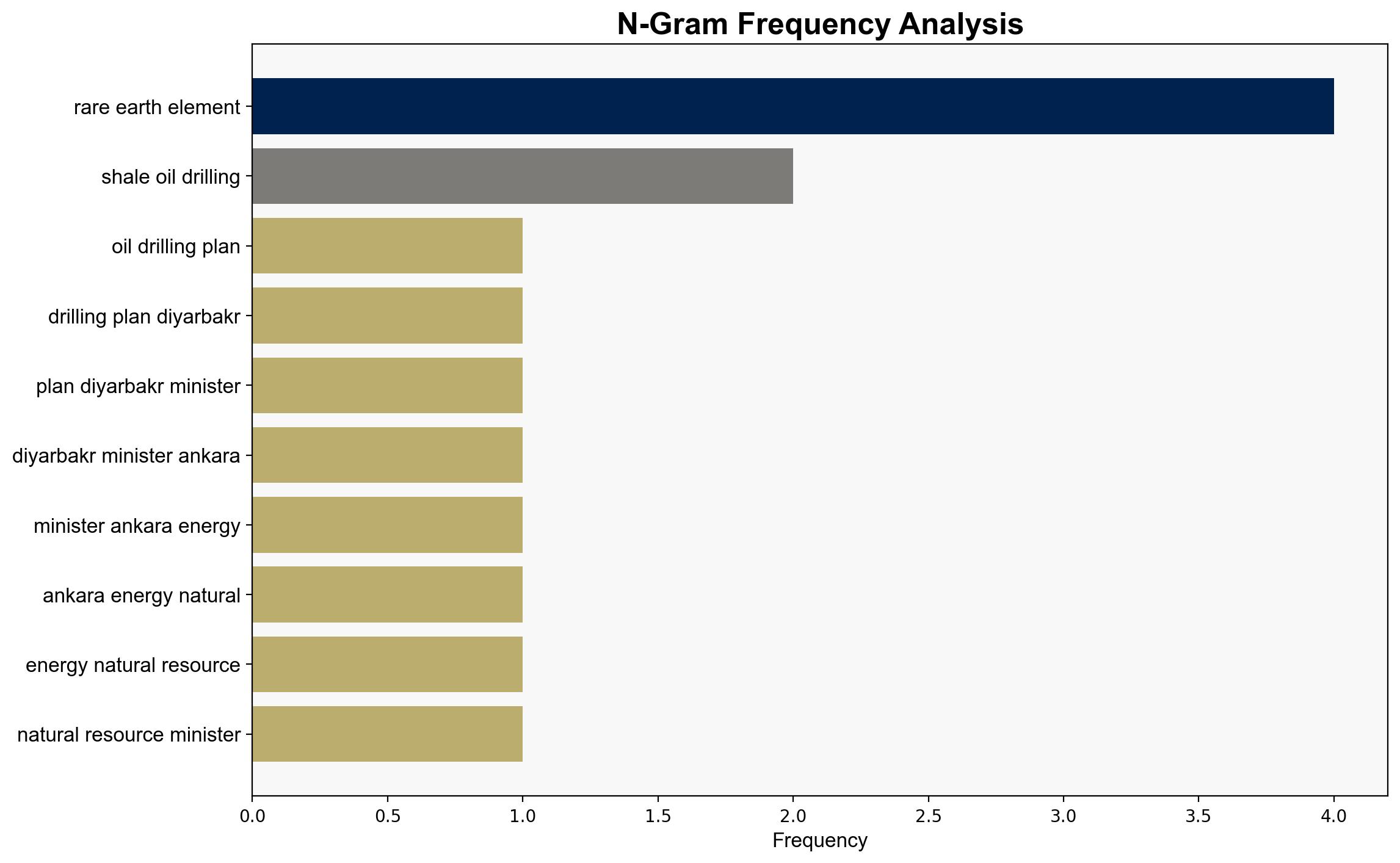Shale oil drilling planned in Diyarbakr says Minister – Hurriyet Daily News
Published on: 2025-10-30
Intelligence Report: Shale oil drilling planned in Diyarbakr says Minister – Hurriyet Daily News
1. BLUF (Bottom Line Up Front)
The most supported hypothesis is that Turkey is strategically expanding its energy sector to reduce dependency on foreign energy sources and increase its geopolitical influence. This is supported by the comprehensive plans for shale oil drilling, nuclear energy development, and international partnerships. Confidence level: Moderate. Recommended action: Monitor Turkey’s energy sector developments and assess potential impacts on regional energy markets and geopolitical dynamics.
2. Competing Hypotheses
1. **Hypothesis A**: Turkey’s energy expansion is primarily driven by economic motives to meet domestic energy demand and achieve energy independence.
– **Supporting Evidence**: Plans to triple energy demand, expand oil and natural gas exploration, and develop nuclear power capacity.
2. **Hypothesis B**: Turkey’s energy initiatives are part of a broader geopolitical strategy to enhance its regional influence and leverage energy resources in international negotiations.
– **Supporting Evidence**: Overseas exploration efforts in Libya, Azerbaijan, Kazakhstan, and Iraq, and the emphasis on rare earth elements and nuclear energy.
Using ACH 2.0, Hypothesis A is better supported due to the direct focus on domestic energy needs and infrastructure development.
3. Key Assumptions and Red Flags
– **Assumptions**: Turkey’s energy demand will continue to grow, and international partnerships will remain stable.
– **Red Flags**: Potential overestimation of domestic energy demand growth, geopolitical tensions affecting overseas projects, and the feasibility of nuclear and rare earth projects.
– **Blind Spots**: The impact of global energy market fluctuations and potential environmental opposition to shale oil drilling.
4. Implications and Strategic Risks
– **Economic**: Successful energy expansion could reduce Turkey’s energy import costs and enhance economic stability.
– **Geopolitical**: Increased energy independence may shift Turkey’s foreign policy dynamics, affecting relationships with energy-exporting countries.
– **Environmental**: Shale oil drilling could face domestic and international environmental scrutiny, potentially leading to regulatory challenges.
– **Cybersecurity**: Expansion of energy infrastructure increases vulnerability to cyber threats targeting critical energy assets.
5. Recommendations and Outlook
- Monitor developments in Turkey’s energy sector and assess potential impacts on regional energy security.
- Engage in diplomatic dialogues to understand Turkey’s long-term energy strategies and their geopolitical implications.
- Scenario Projections:
- **Best Case**: Successful energy projects lead to economic growth and regional stability.
- **Worst Case**: Geopolitical tensions and environmental challenges stall projects, leading to economic strain.
- **Most Likely**: Gradual progress with intermittent challenges, maintaining Turkey’s strategic focus on energy independence.
6. Key Individuals and Entities
– Alparslan Bayraktar
– Turkish Ministry of Energy and Natural Resources
– Eti Maden
– MTA (General Directorate of Mineral Research and Exploration)
7. Thematic Tags
energy security, geopolitical strategy, economic development, environmental impact




